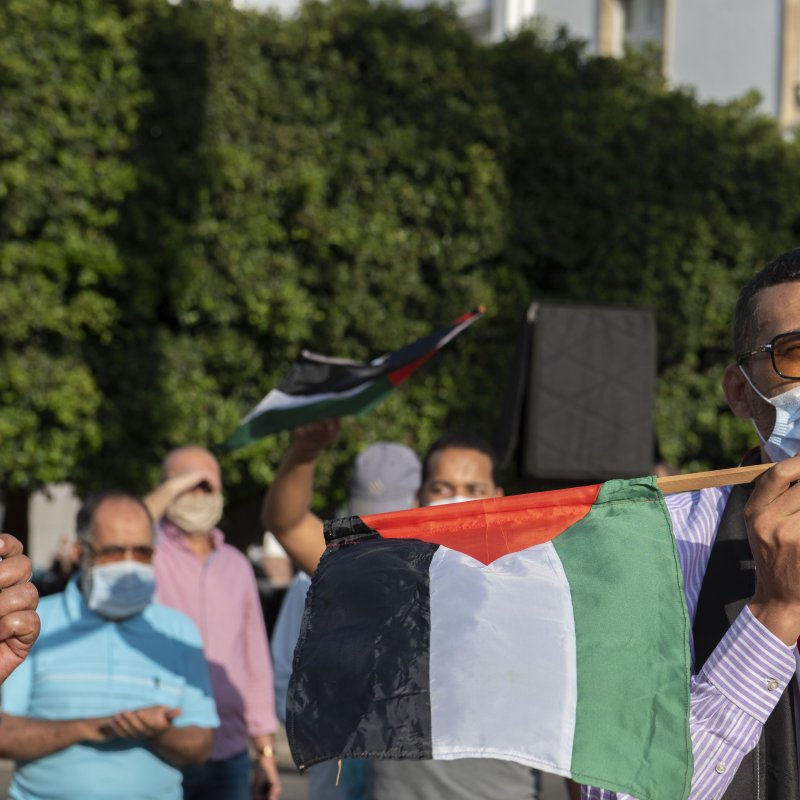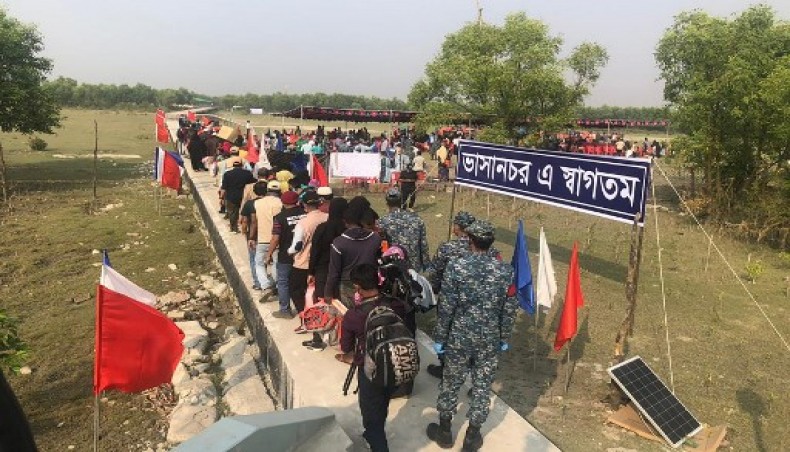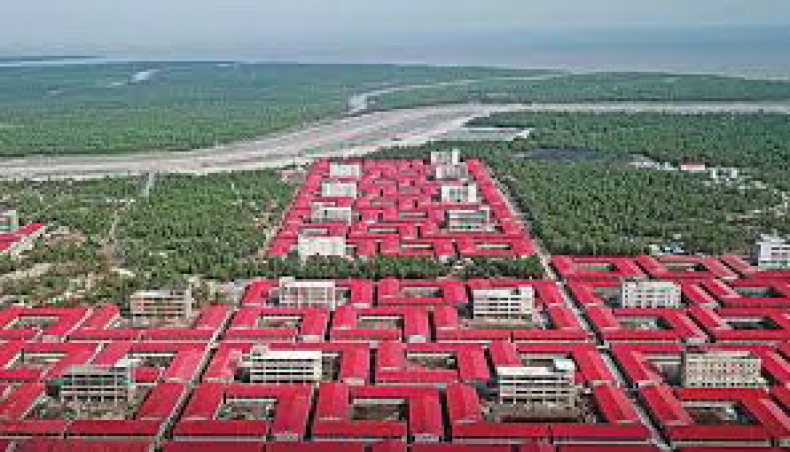
A man holds Palestinian and Moroccan flags during a protest on September 18 opposing the normalization of relations with Israel and showing Palestinian support, in front of Parliament in Rabat, Morocco. File Photo by Jalal Morchidi/EPA-EFE
Dec. 10 (UPI) -- Israel and Morocco have agreed to normalize relations, the Trump administration announced on Thursday.
With the deal, Morocco is the fourth Arab country to normalize relations with Israel since the summer, after the United Arab Emirates, Bahrain and Sudan.
"As part of this deal, Morocco will establish full diplomatic relations and resume official contacts with Israel. They will grant overflights and direct flights to and from Israel for all Israelis," White House adviser Jared Kushner told reporters in a press call Thursday.
"They'll reopen the liaison offices in Rabat and Tel Aviv immediately, with the intention to open the embassies in the near future. They'll be promoting economic cooperation between Israeli and Moroccan companies."
President Donald Trump called it a "historic breakthrough."
"Our great friends Israel and the Kingdom of Morocco have agreed to full diplomatic relations -- a massive breakthrough for peace in the Middle East," he tweeted.
Additionally, Trump signed a proclamation declaring Morocco's sovereignty over Western Sahara, a disputed territory in northwestern Africa.
The Moroccan government has mostly controlled the area, but a small portion has been managed by the partially recognized Sahrawi Arab Democratic Republic, a self-proclaimed sovereign state established by the Polisario Front in the 1970s.
"The United States believes an independent Sahrawi State is not a realistic option for resolving the conflict and that genuine autonomy under Moroccan sovereignty is the only solution," the proclamation states. "We urge the parties to engage in discussions without delay, using Morocco's autonomy plan as the only framework to negotiate a mutually acceptable solution.
"To facilitate progress toward this aim, the United States will encourage economic and social development with Morocco, including in the Western Sahara territory, and to that end will open a consulate in the Western Sahara territory, in Dakhla, to promote economic and business opportunities for the region."
Morocco is said to be the first country to recognize the United States after it declared independence 244 years ago.
"Morocco recognized the United States in 1777," Trump added in a tweet. "It is thus fitting we recognize their sovereignty over the Western Sahara."
Morocco and the United States recently renewed a defense cooperation road map through 2030.
upi.com/7060326
Western Sahara - Newikis
This article is about the geographical area. For the partially recognized state that controls the Free Zone and claims sovereignty over ... partially controlled by the self-proclaimed Sahrawi Arab Democratic Republic and partially occupied by neighboring Morocco. Its surface area amounts to 266,000 square kilometres (103,000 sq mi). It is one of the most sparsely populated territor
This article is about the geographical area. For the partially recognized state that controls the Free ... French: Sahara Occidental) is a disputed territory in the Maghreb region of North Africa, partially controlled by the self-proclaimed Sahrawi Arab Democratic Republic and partially Moroccan-occupied, bordered by Morocco proper to the north, Algeria to the northeast, Mauritania to the east ...
Western Sahara - Infogalactic: the planetary knowledge core
For the partially recognized state that controls the Free Zone and claims sovereignty over Western Sahara, ... The exiled government of the self-proclaimed Sahrawi Arab Democratic Republic (SADR) is a form of single-party parliamentary and presidential system, but according to its constitution, this will be changed into a multi-party system at the achievement of independence. It is presently ...
Morocco - TheInfoList
Morocco was the only African state not to be a member of the African Union due to its unilateral withdrawal on 12 November 1984 over the admission of the Sahrawi Arab Democratic Republic in 1982 by the African Union (then called Organisation of African Unity) as a full member without the organisation of a referendum of self-determination in the disputed territory of Western Sahara. Morocco ...
Western Sahara | Familypedia | Fandom
Western Sahara (/ʔ səˈhɑːrə,_ʔˈhærə/; Arabic: الصحراء الغربية aṣ-Ṣaḥrā’ al-Gharbīyah; Berber: Taneẓroft Tutrimt; Spanish and French: Sahara Occidental) is a disputed territory in the Maghreb region of North Africa, partially controlled by the self-proclaimed Sahrawi Arab Democratic Republic and partially Moroccan












